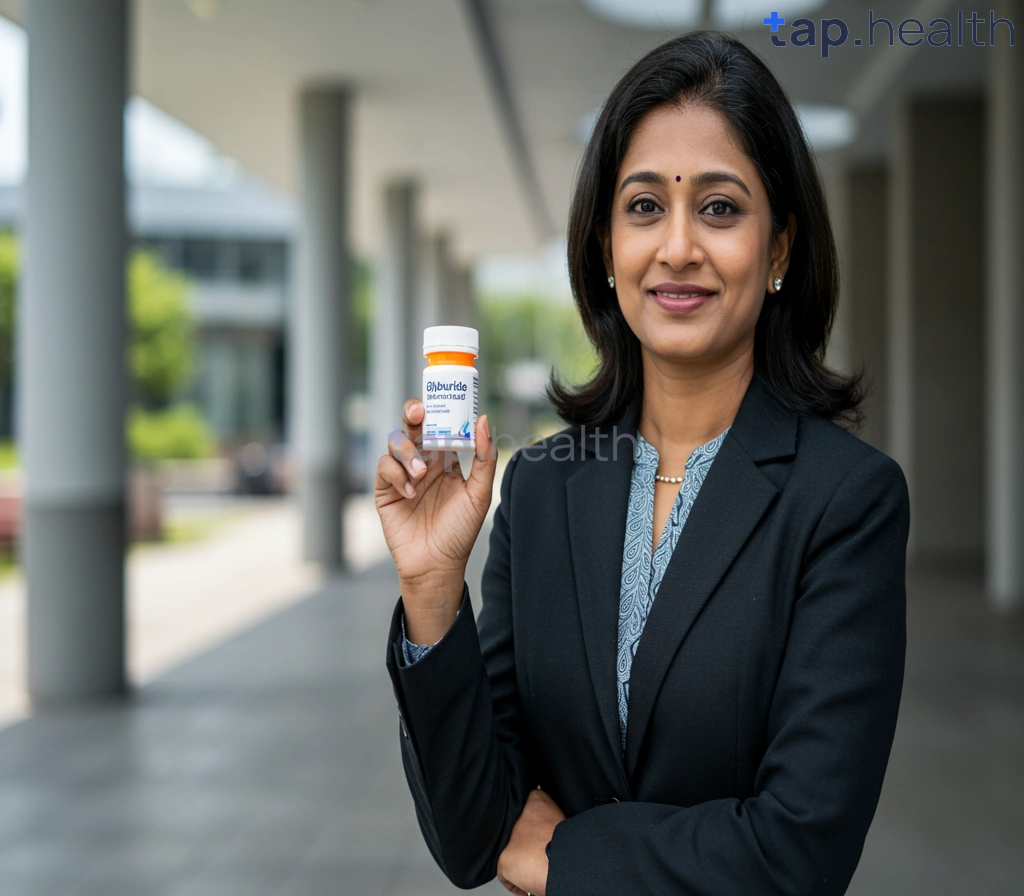Table of Contents
- Science Saturday: Latest Diabetes Research Breakthroughs
- New Diabetes Treatments: Science Saturday Updates
- Diabetes Research: What’s New This Saturday?
- Understanding Diabetes: Key Discoveries from Science Saturday
- Science Saturday: Promising Diabetes Studies & Implications
- Frequently Asked Questions
Tired of the same old diabetes information? Ready for some exciting breakthroughs? Then you’ve come to the right place! Every week, we bring you Science Saturday: Breaking Diabetes News & Research, your one-stop shop for the latest advancements in diabetes treatment and prevention. We’ll break down complex scientific studies into easily digestible pieces, helping you stay informed and empowered in managing your health. Get ready to discover groundbreaking discoveries and learn how they could impact your life!
Science Saturday: Latest Diabetes Research Breakthroughs
The global diabetes crisis is alarming: 6.7 million deaths in 2021 – that’s one person every five seconds. The IDF Diabetes Atlas paints a stark picture. This urgent situation demands relentless research, especially in regions like India and other tropical countries facing a rapidly escalating epidemic.
Understanding the Regional Challenges
India, and many tropical nations, present unique hurdles. It’s a complex interplay of factors: genetic predisposition plays a role, but lifestyle shifts from urbanization are hugely significant. Increased access to processed foods, less physical activity due to sedentary jobs, and often, limited access to quality healthcare all contribute to the rising rates. Add high obesity levels and poor diets to the mix, and the picture becomes clearer. Tackling this requires understanding these interwoven challenges.
Promising Research and Breakthroughs
The good news? Exciting research is underway! Scientists are focusing on earlier detection, using genetics to tailor treatment, and developing innovative therapies. Imagine personalized medication plans, predicting who’s at highest risk, and new ways to better control blood sugar and avoid long-term complications. For a glimpse into the technological revolution in diabetes management, check out this article on new tech. It’s truly inspiring.
Actionable Steps for Better Diabetes Management
For individuals, proactive management is key. Regular check-ups are non-negotiable. Think of it as preventative maintenance for your body. Focus on a balanced diet bursting with fruits and vegetables, prioritize regular exercise (even a daily walk makes a difference!), and manage stress effectively. Early detection and consistent monitoring drastically improve outcomes. Staying informed empowers you to take charge of your health.
Empowering Communities
Ultimately, overcoming this requires a community-wide effort. Increased awareness, better access to healthcare, and strong community support programs are crucial. By working together – doctors, patients, and policymakers alike – we can empower communities to effectively manage diabetes and significantly improve the lives of millions.
New Diabetes Treatments: Science Saturday Updates
The global diabetes crisis is alarming. The number of people living with this condition exploded from 200 million in 1990 to a staggering 830 million in 2022—a truly eye-opening statistic, particularly in India and other tropical regions. The World Health Organization has more on this worrying trend. This surge underscores the desperate need for better treatments and prevention strategies tailored to these areas.
Understanding the Regional Challenges
Why are rates so high in India and the tropics? It’s a complex mix. Rapid urbanization means less physical activity and more processed foods. Think of the shift from traditional diets rich in whole grains and fresh produce to readily available, less healthy options. Add to this a genetic predisposition, and you have a perfect storm for type 2 diabetes. We need solutions that consider these cultural and lifestyle factors.
Promising Advances in Diabetes Treatment
Exciting progress is being made! Personalized medicine is gaining traction—treatments tailored to your genes and lifestyle. This includes more sophisticated insulin delivery, better oral medications, and even cutting-edge research into stem cell therapy and bariatric surgery (though access to the latter is unfortunately limited by cost). For more on supporting your health alongside medical treatments, check out our article on safe and effective dietary supplements for diabetes care.
Actionable Steps for Better Diabetes Management
- Eat well: Prioritize whole grains, fruits, and vegetables. Think vibrant colors on your plate!
- Move your body: Even short walks daily make a huge difference.
- Regular check-ups: Essential, especially if diabetes runs in your family.
- Seek expert advice: Find a healthcare professional familiar with the specific challenges in your region.
Taking Control of Your Health
Early diagnosis and proactive lifestyle changes are your best weapons. Don’t delay seeking professional help to create a personalized plan. Your health is invaluable—take charge of it today!
Diabetes Research: What’s New This Saturday?
Early Diabetes Detection: A Breakthrough in Predictive Modeling
Diabetes is a silent epidemic, especially in countries like India, impacting millions and straining healthcare systems. Early detection is key, and this week brings incredible news. Researchers have developed a game-changing diabetes risk prediction model.
Imagine this: instead of relying on a single blood test snapshot, this model uses sophisticated AI (combining BiLSTM-CRF, XGBoost, and Logistic Regression) to analyze temporal patterns in Electronic Health Records (EHRs). Think of it like a detective analyzing a crime scene – it looks for subtle clues and changes over time to paint a clearer picture of someone’s risk.
Enhanced Accuracy and Personalized Intervention
This isn’t just about improved accuracy; it’s about personalization. By tracking how health indicators change, the model can identify early warning signs often missed by traditional methods. This allows doctors to tailor treatment plans, leading to fewer misdiagnoses and more timely interventions. For instance, if someone shows subtle weight changes and slightly elevated blood sugar readings over several months, the model might flag them as high-risk long before a traditional diagnosis. Understanding the interplay between obesity and diabetes is crucial here – learn more in our blog on Understanding the Link Between Diabetes and Obesity.
Actionable Insights for India and Tropical Countries
For India and other tropical nations battling high diabetes rates, this model is a powerful tool. Using readily available EHR data, healthcare providers can proactively identify at-risk individuals. This allows for preventive measures, lifestyle changes, and early medical intervention, lessening the disease’s long-term impact. Learn more about this groundbreaking model.
Taking Action: Towards Better Diabetes Care
This is a significant step toward data-driven healthcare. The next step? Integrating this model into existing systems to maximize its impact. Early detection and personalized care are vital in fighting diabetes, and this research brings us closer to a healthier future for millions.
Understanding Diabetes: Key Discoveries from Science Saturday
The Growing Concern in India and Tropical Countries
Diabetes is a silent epidemic, especially impacting the working-age population in India and other tropical nations. 61% of those living with diabetes are between 20 and 64 – the very people driving economic growth! This makes managing diabetes crucial, not just for individual health, but for the economic well-being of these regions. The sheer scale of the problem is laid bare in the IDF Diabetes Atlas.
Recent Breakthroughs and Their Relevance
We’re seeing a surge in type 2 diabetes, often linked to lifestyle. In many tropical areas, access to nutritious food and regular exercise isn’t always easy. Imagine trying to maintain a healthy diet when fresh produce is expensive or unavailable. This highlights the urgent need for preventative measures – focusing on affordable, locally sourced, balanced diets brimming with fruits and vegetables.
Practical Steps for Prevention and Management
The good news is, simple lifestyle tweaks can make a huge difference. For people in India and similar climates, this could mean incorporating traditional practices – like mindful eating or adapting yoga to the heat – into daily life. Community-based programs offering accessible healthcare and education are also key. Learn more about the power of education in diabetes management here.
Empowering Communities, Building a Healthier Future
Tackling this epidemic needs a multi-pronged approach. It’s about blending cutting-edge science with culturally sensitive solutions. By empowering communities with knowledge and resources, we can build a healthier future, one step at a time. Let’s prioritize awareness, accessible care, and sustainable lifestyle changes to fight this growing challenge together.
Science Saturday: Promising Diabetes Studies & Implications
Early Detection: A Game Changer for Diabetes Management in India and Tropical Countries
Diabetes is a silent epidemic, especially in India and other tropical nations. Millions are affected, straining already burdened healthcare systems. Early diagnosis is key – it’s the difference between managing the condition and facing serious complications down the line. Thankfully, exciting new research offers a real breakthrough. A recent study using machine learning and explainable AI (XAI) shows incredible promise in predicting diabetes risk.
Predictive Power of Machine Learning in Diabetes Diagnosis
This research boasts a remarkable 92.50% accuracy in predicting diabetes – that’s impressive! The study also achieved an excellent 0.975 ROC-AUC score. What’s even better? The model isn’t just accurate; it’s explainable. It pinpoints key risk factors like BMI, age, overall health, income, and physical activity. This allows for targeted interventions. Imagine, being able to address these factors early, especially in regions with limited resources, and potentially prevent diabetes from developing. Remember, healthy habits, including prioritizing quality sleep, play a huge role.
Actionable Insights for Individuals and Healthcare Providers
The message is clear: lifestyle matters. Maintaining a healthy weight, regular exercise, and tackling socioeconomic barriers to health are crucial for prevention. For healthcare providers, this AI tool offers a powerful new weapon in early detection, particularly in areas lacking advanced diagnostic technology. Its reliance on easily accessible data makes it incredibly adaptable.
Further Exploration & Resources
Want to dive deeper? Check out the full research paper: Machine Learning and XAI for Diabetes Prediction. This study empowers us to fight diabetes proactively, improving health outcomes worldwide. Early intervention and better risk assessment are absolutely vital for a healthier future.
Frequently Asked Questions on Diabetes News
Q1. What is the current state of diabetes research and its significance?
Current research focuses on earlier detection methods, personalized treatments based on genetics, and innovative therapies to better control blood sugar and reduce long-term complications. This is crucial due to the alarming rise in diabetes cases globally, particularly in India and other tropical regions, where unique challenges like lifestyle changes and limited healthcare access exist.
Q2. What are the key regional challenges in managing diabetes, especially in India and tropical countries?
These regions face a complex interplay of factors including genetic predisposition, rapid urbanization leading to less physical activity and increased processed food consumption, limited access to quality healthcare, high obesity rates, and often, poor diets. Addressing these interwoven challenges is crucial for effective diabetes management.
Q3. What actionable steps can individuals take to better manage their diabetes?
Regular check-ups are vital. Maintaining a balanced diet rich in fruits and vegetables, regular exercise (even short walks), and effective stress management are crucial. Early detection and consistent monitoring significantly improve outcomes. Seeking expert advice tailored to your region is also recommended.
Q4. What promising advances are being made in diabetes treatment?
Personalized medicine is gaining traction, tailoring treatments to individual genes and lifestyles. This includes advancements in insulin delivery, oral medications, and research into stem cell therapy and bariatric surgery (though access to the latter is limited by cost).
Q5. How can communities work together to combat the diabetes crisis?
A community-wide effort is essential, encompassing increased awareness campaigns, improved access to healthcare, and strong community support programs. Collaboration among doctors, patients, and policymakers is crucial to empower communities to effectively manage diabetes and improve the lives of millions.





